Hyundai IONIQ – In case you hadn’t noticed, the buzz word around motoring and political circles right now is `electric.’
The green button has been pushed in some quarters and there’s a rush to get EVs onto the market.
Who will buy them is open to conjecture suffice to say the biggest buyer group is likely to be government in all its permutations.
EVs are great for the city but can the technology rise to being applicable in a one tonne ute?
Big question in Oz…
Once you get over the relatively long recharge cycle, EVs are pretty good all things considered, especially if you have a solar array on the roof and can recharge for free and create zero emissions in the process.
There is urgent importance in developing EVs for a whole raft of reasons especially as nobody in their right mind would want the planet getting any hotter.
Hyundai has really picked up the alternate fuel ball by offering numerous powertrain options including hydrogen, battery EV, plug in hybrid and hybrid petrol electric mainstream car choices.
Their latest “green machine” is the Ioniq five door small hatch with the full EV topping the range.
It has an ungainly frontal appearance with no grille but Hyundai says they’re changing that as of now giving Ioniq EV a more conventional face.
I drove the car for a week and recharging was a pain in the bum because of the electric powertrain and range limitations. But Ioniq is already being surpassed on all EV fronts by Hyundai’s own, extremely impressive Kona Electric.
I suppose once you commit to an EV and have the right off peak recharge set-up at home it might be an easier ownership experience.
Interior
Inside is pretty much standard Hyundai only in the case of the test car, a Premium model, it had the full leather treatment along with a generous array of luxury, safety and practical features to offset the $49,000 ask.
The tones are light and dark grey and there are plenty of soft touch surfaces along with some technical looking fascia materials and the obligatory large centre control screen complete with comprehensive power use meters
The front seats are heated and cooled and the driving position is a bit like a cockpit.
There’s no floor tunnel so extra room is provided for passengers.
The good size boot has a secret underfloor compartment and more storage is available by folding rear pews.
Access is easy through four side doors and the rear hatch is a decent size too.
I like the simplicity of the controls including the button “gear” selector and drive mode select, also button controlled.
Features
The Premium scores plenty and so it should for the money.
You get;
- 16-inch flat face alloys
- Locally calibrated (very competent) ride and handling
- Single speed drive (no gears)
- Electric park brake
- Leather
- Premium audio
- Hard wired satnav
- Aluminium body panels
- Auto wipers and headlights
- Supervision cluster
- Smartphone streaming
- Dual zone climate control
- LED low beam.
Drive and Engine
This is the interesting bit for Ioniq could be just another small hatch if it wasn’t for the all-electric powertrain.
Drive to the front wheels comes from an 88kW/295Nm electric motor via a 28kW/h lithium ion polymer battery.
It has plenty of get-go straight off the mark and doesn’t button off at all until terminal velocity is reached (whatever that is).
There are no gears meaning direct drive which is a touch eerie but is certainly smooth and quiet apart from a barely audible whirr.
Maintenance would be minimal for an EV which is a plus and the car is calibrated by local Hyundai engineers so that means it has decent ride and handling characteristics.
You can drive it fairly hard like a sporty hatch but the ‘fuel’ gauge goes down really fast when you do.
So don’t venture too far from home ….
The test car would realistically go about 200km on one charge which a touch is limiting. I would suggest Hyundai has this under review as the (also driven) Kona Electric will go twice that far on a charge and go harder into the bargain.
The action of getting out the recharge kit and plugging it in overnight is tedious but if you live inner city and don’t go far each day, this would only happen once or twice a week.
Safety
Ioniq has the full array of advanced driver assist safety features and is engineered for maximum occupant protection.
All the high voltage electrics are a bit of a worry for me especially as there isn’t an isolation switch or fire extinguisher in the car.
Having said that, technology is likely to keep you out of trouble in the first place.
ANCAP gives Ioniq a five star crash rating which isn’t surprising.
Good Bits
- Emissions free driving (apart from the source of electricity)
- Impressive performance
- Silent running
Not So Good Bits
- Costs a lot for what it is
- Annoying recharge process
- Limited range
Summary
I am not a convert to EVs yet. Call me a dinosaur and you’re probably right as I have a similar attitude to autonomous cars.
We aren’t there yet on both scores, the latter by a long shot.
However, I could live with the Ioniq EV if I lived in a major metro area and drove only short distances. I’d have a clear conscience and enjoy minimal running costs.
On the other hand, I’d probably buy the Ioniq Hybrid over the pure EV and drive it like a normal car….. Happy days.
Facts and Figures: 2019 Hyundai Ioniq EV
- Engine: Electric producing 88kW/295Nm
- Transmission: Direct drive no gears
- Warranty: 5 years/ unlimited km
- Safety: Five stars
- Origin: South Korea
- Price: from $49,000*
*MLP – Manufacturers List Price includes GST and LCT but excluding statutory charges, dealer costs and dealer delivery. See your dealer for RDAP. Does not include price of any options.

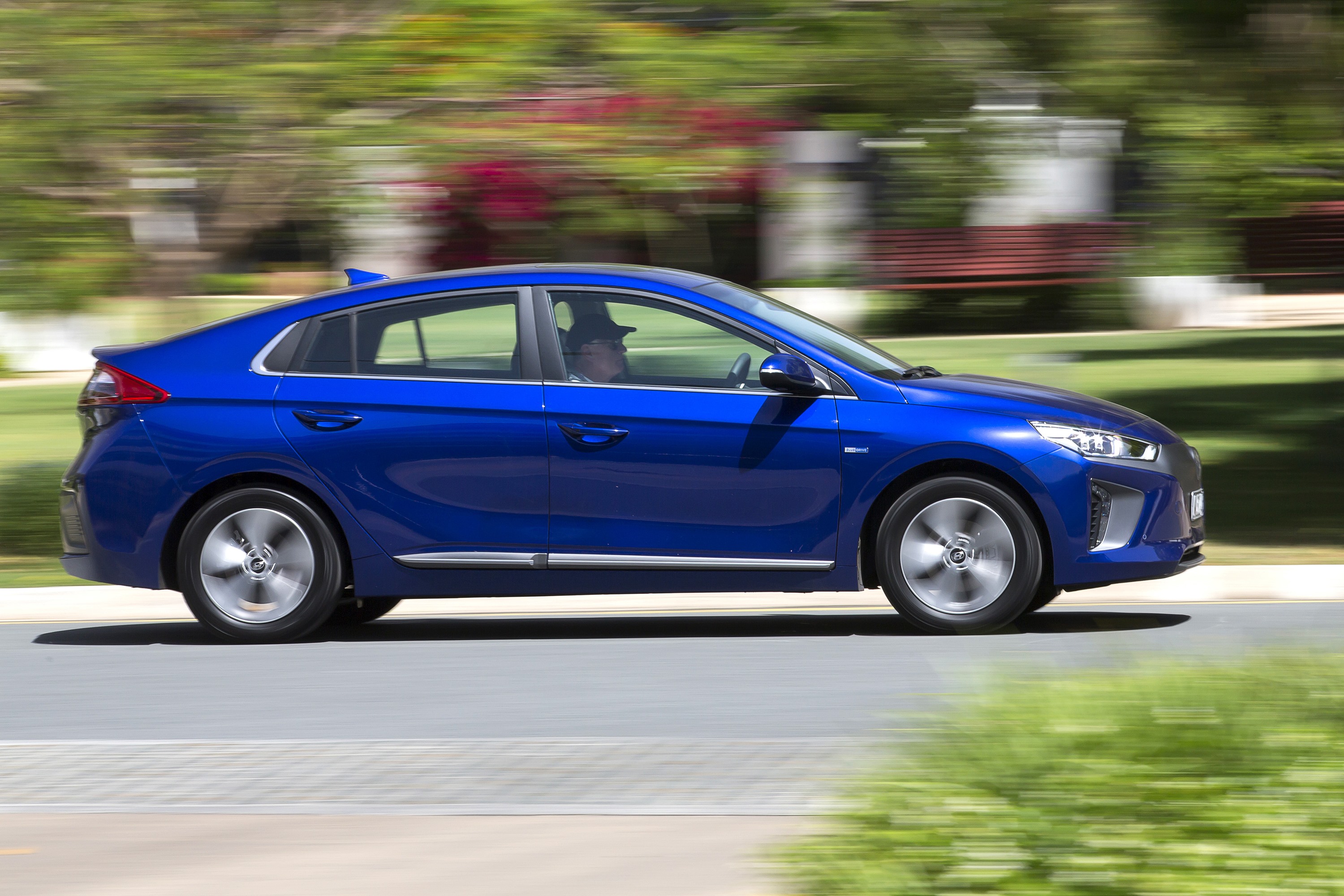
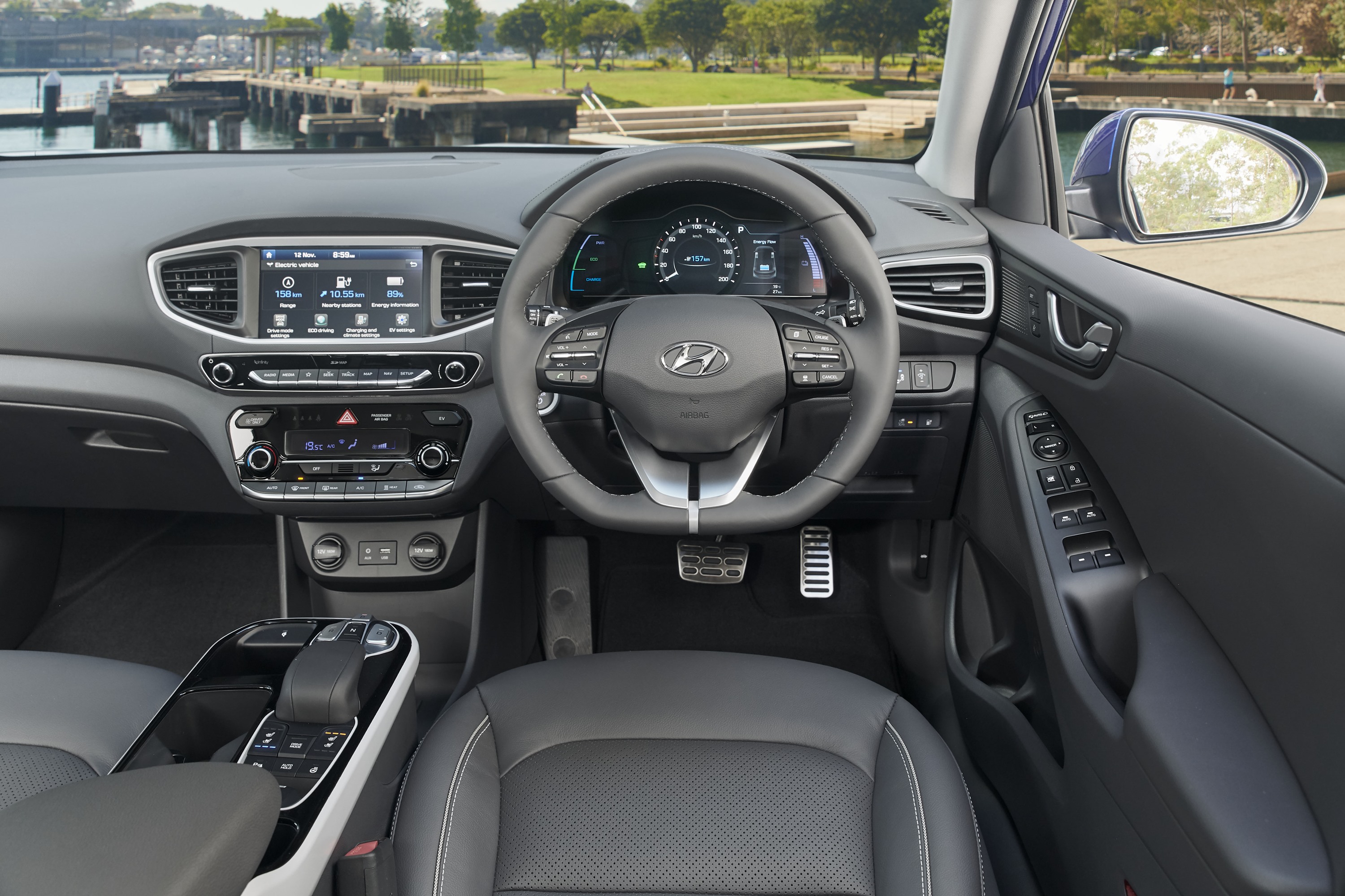
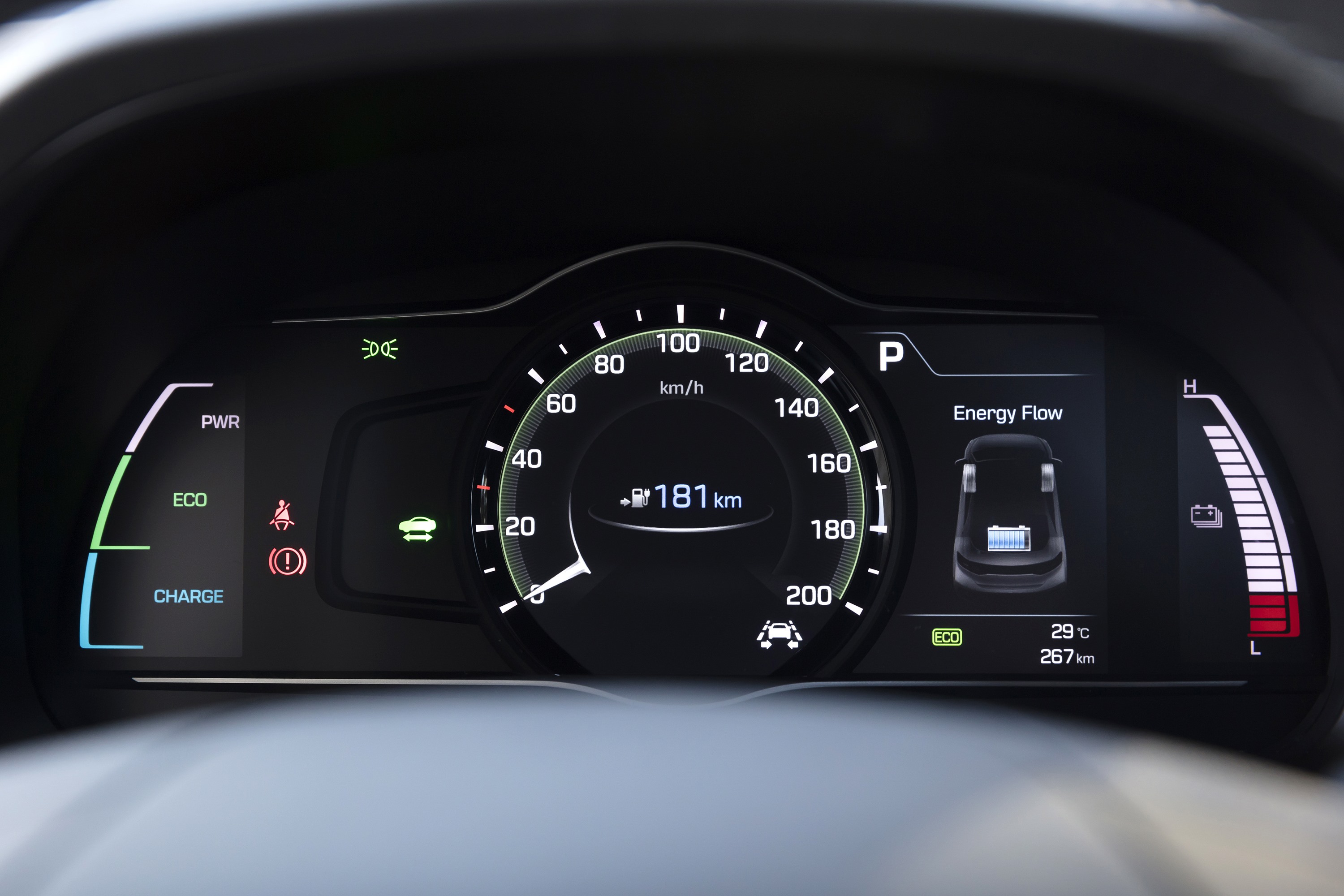
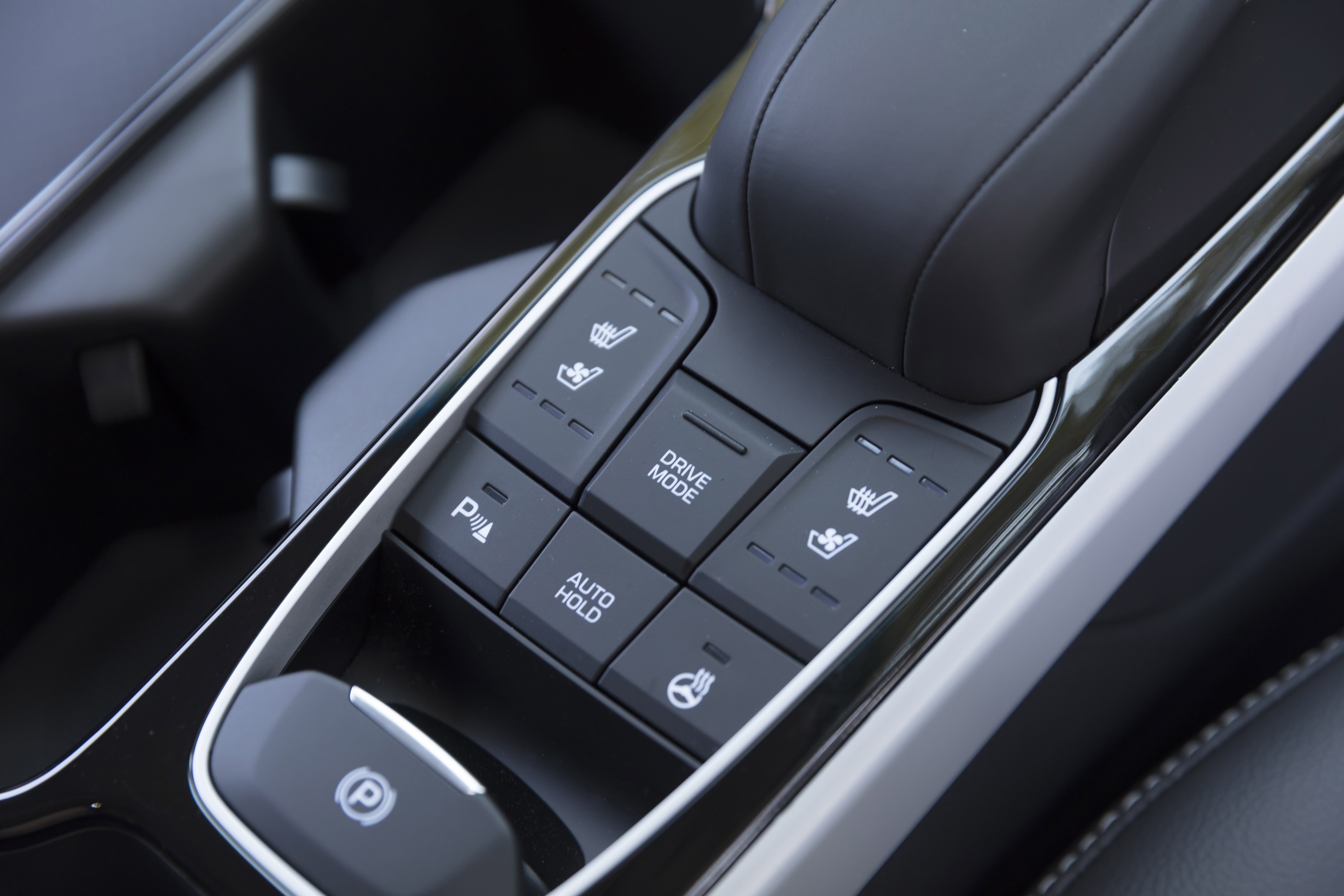
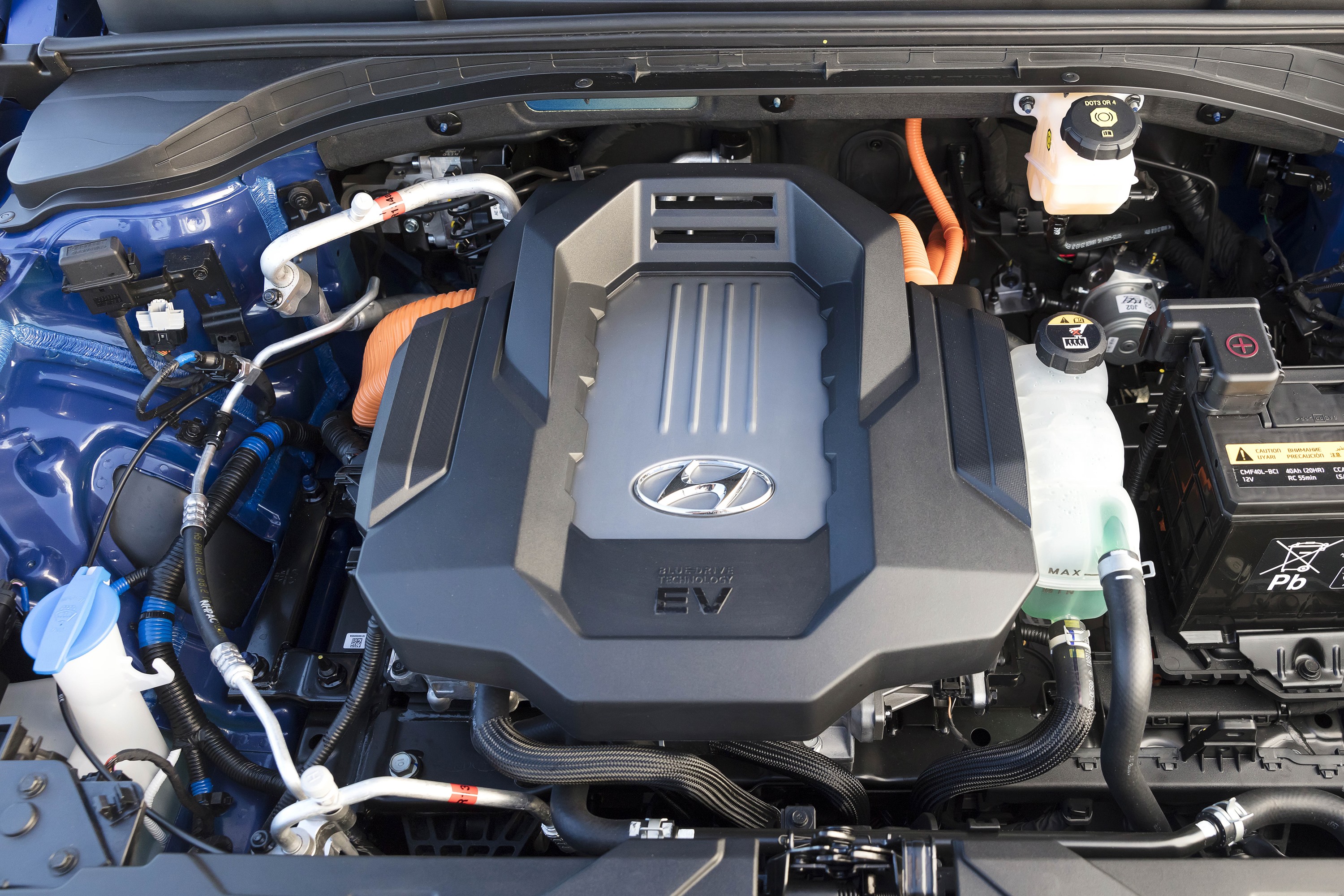
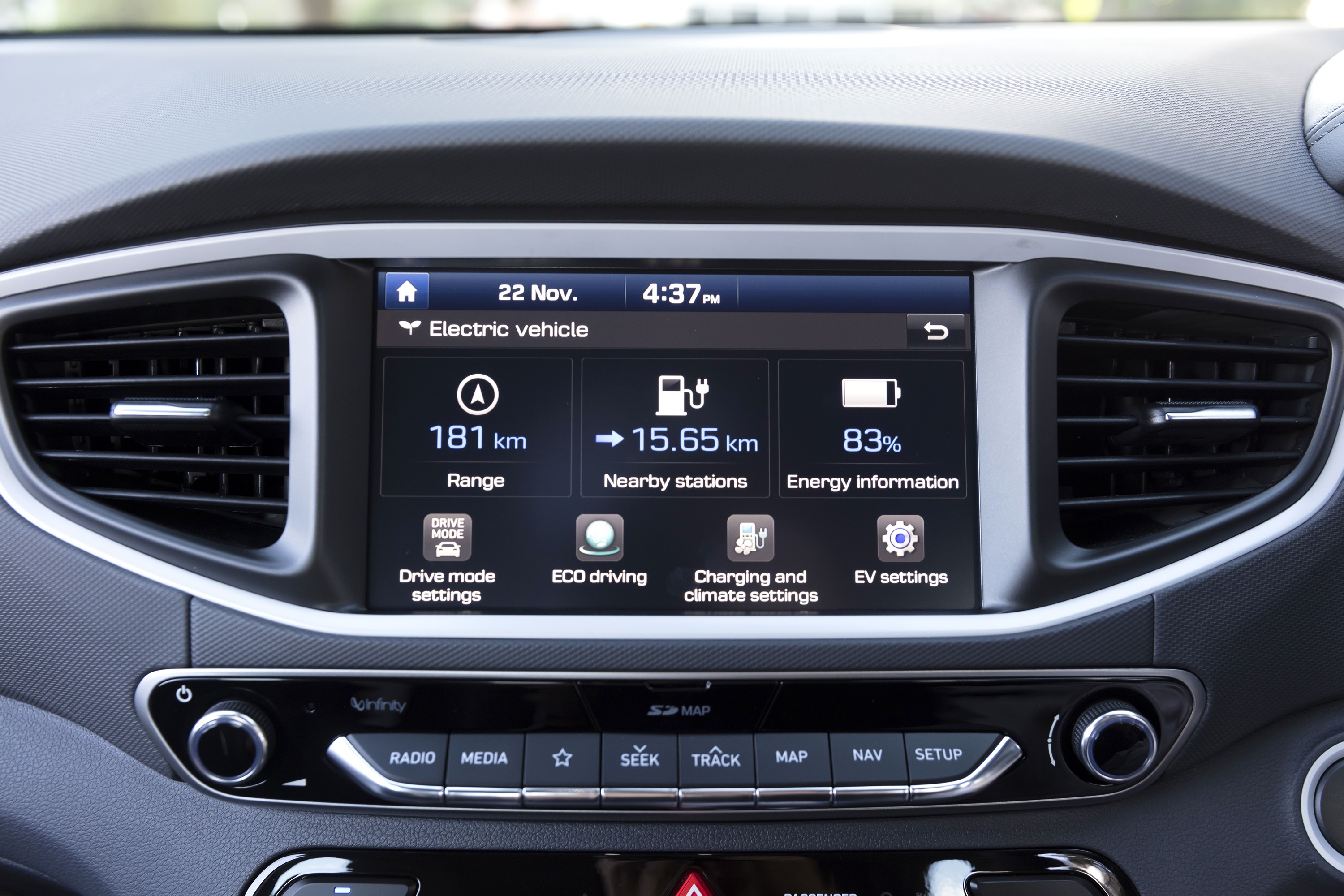
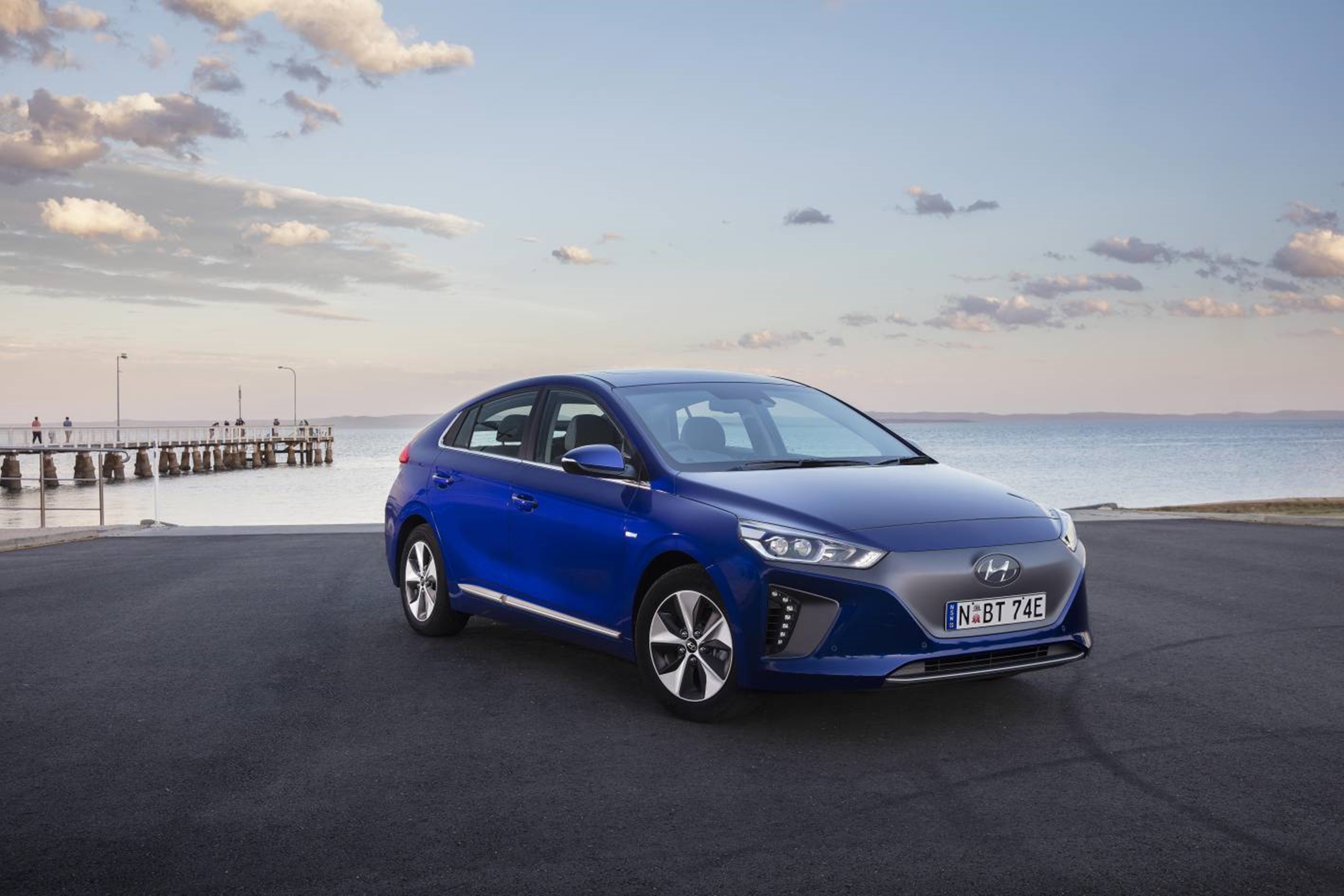
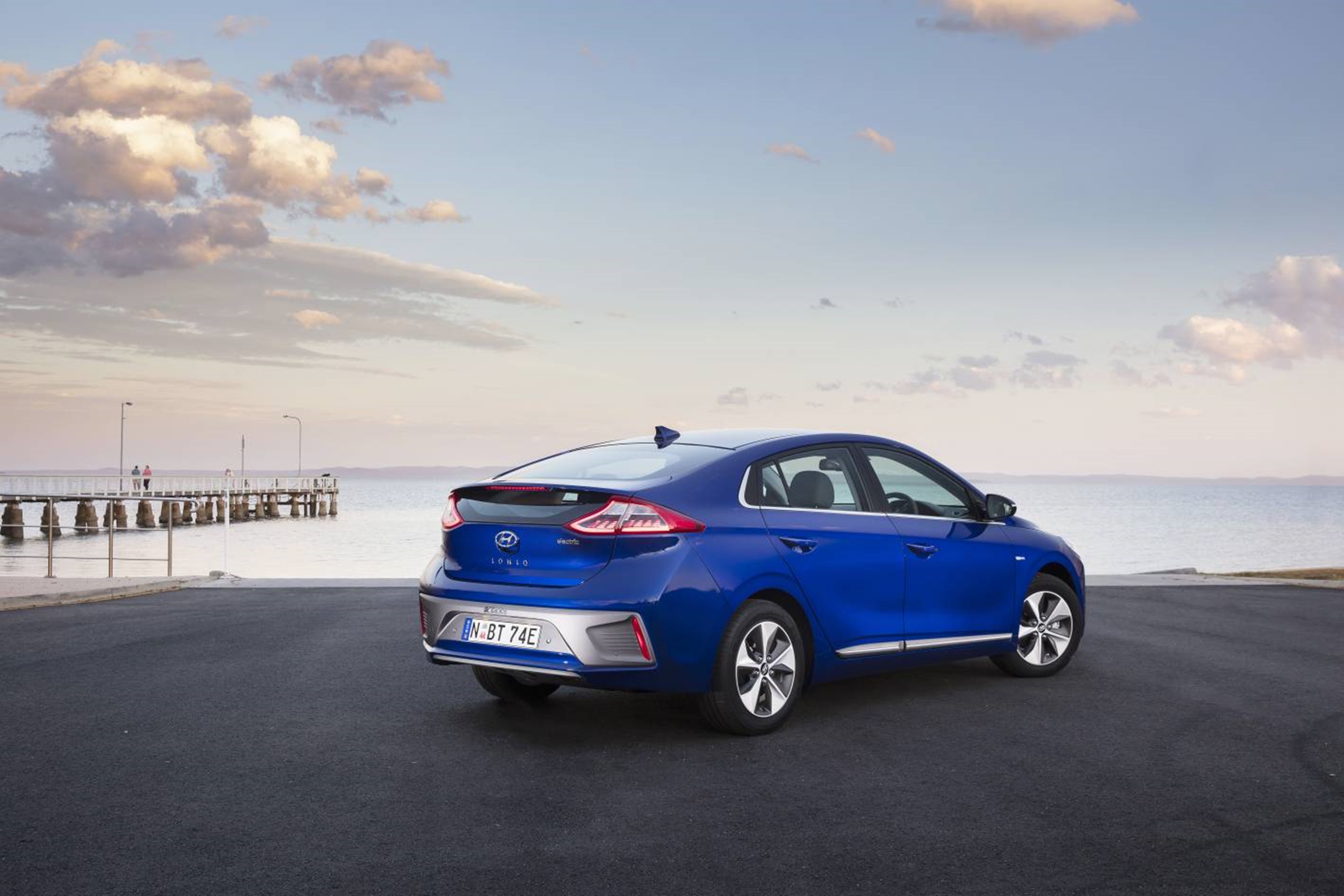




Be the first to comment